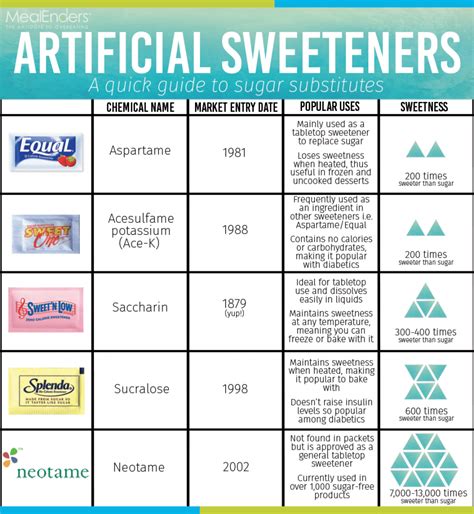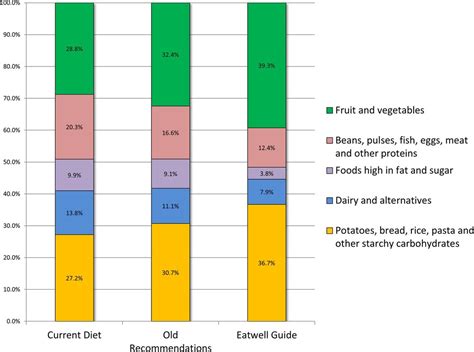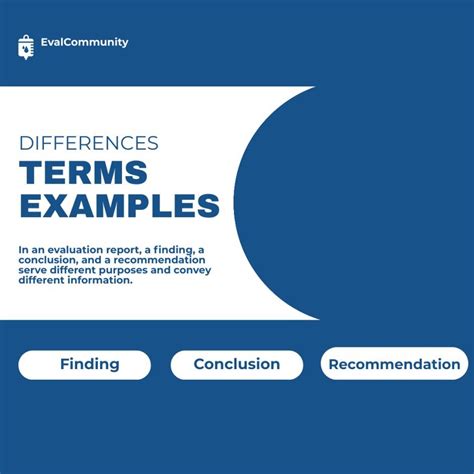Intro
The use of artificial sweeteners has become increasingly popular in recent years, particularly among health-conscious individuals and those managing conditions like diabetes. Artificial sweeteners are synthetic or natural substances used as alternatives to sugar, providing sweetness without the calories. Understanding the different types of artificial sweeteners available is crucial for making informed choices about diet and health.
Artificial sweeteners have been a subject of interest due to their potential health benefits and risks. While they offer a way to reduce sugar intake and manage calorie consumption, some studies have raised concerns about their impact on metabolic health, gut bacteria, and potential links to diseases. Despite these concerns, many artificial sweeteners are widely used in food products, beverages, and as tabletop sweeteners.
The importance of understanding artificial sweeteners lies in their widespread use and the varying effects they can have on different individuals. Some people may experience adverse reactions or notice differences in how their bodies respond to these substances compared to natural sugars. Moreover, the choice of artificial sweetener can significantly impact dietary preferences, lifestyle choices, and overall health management.
Introduction to Artificial Sweeteners

Artificial sweeteners are designed to provide sweetness without the calorie content of sugar. They are often used by individuals seeking to manage their weight, reduce their risk of dental cavities, or control blood sugar levels. The market offers a variety of artificial sweeteners, each with its unique characteristics, advantages, and potential health implications.
Types of Artificial Sweeteners

There are several types of artificial sweeteners approved for use in foods and beverages. These include:
- Saccharin: One of the earliest artificial sweeteners discovered, saccharin is approximately 300 times sweeter than sugar. It is commonly used in tabletop sweeteners like Sweet'N Low.
- Aspartame: Known for its use in diet sodas and sugar-free gum, aspartame is about 200 times sweeter than sugar. It is also found in tabletop sweeteners like Equal and Nutrasweet.
- Sucralose: This artificial sweetener is 600 times sweeter than sugar and is used in a variety of products, including baked goods, beverages, and tabletop sweeteners like Splenda.
- Stevia: Derived from the Stevia rebaudiana plant, stevia is a natural sweetener that is 200-300 times sweeter than sugar. It is used in products like Truvia and PureVia.
- Acesulfame Potassium: This sweetener is about 200 times sweeter than sugar and is often used in combination with other artificial sweeteners in foods and beverages.
- Neotame: A derivative of aspartame, neotame is approximately 7,000 to 13,000 times sweeter than sugar. It is used in a variety of food products.
Benefits of Artificial Sweeteners
The benefits of artificial sweeteners include their ability to provide sweetness without the calorie content of sugar, making them a popular choice for those managing their weight or controlling blood sugar levels. They also do not contribute to tooth decay, as they are not metabolized by the bacteria in the mouth.Health Considerations

While artificial sweeteners are generally recognized as safe by regulatory agencies, there are ongoing debates and research into their potential health effects. Some studies have suggested links between artificial sweetener consumption and metabolic disorders, cancer, and changes in gut microbiota. However, many of these findings are based on animal studies or observational data, and more research is needed to fully understand the implications for human health.
Risks and Controversies
Despite their popularity, artificial sweeteners have been at the center of several health controversies. Some of the concerns include: - **Impact on Gut Health**: Altering the balance of gut bacteria, which could affect metabolic health and the immune system. - **Contribution to Metabolic Syndrome**: Some research suggests that artificial sweeteners may confuse the body's natural ability to regulate calorie intake, potentially leading to metabolic problems. - **Link to Cancer**: Early studies raised concerns about a potential link between certain artificial sweeteners and cancer, although more recent and comprehensive research has generally found no significant association.Dietary Uses and Prevalence

Artificial sweeteners are used in a wide range of products, including diet sodas, sugar-free gum, low-calorie desserts, and tabletop sweeteners. Their prevalence in modern diets has led to a significant reduction in sugar consumption for many individuals, which can have positive effects on dental health and weight management.
Consumer Preferences and Trends
Consumer preferences for artificial sweeteners vary widely, influenced by factors such as taste, perceived health benefits, and dietary needs. The trend towards natural and low-calorie products has driven the development of new artificial sweeteners derived from natural sources, like stevia.Regulatory Frameworks

The use of artificial sweeteners is regulated by food safety authorities around the world, such as the FDA in the United States and the EFSA in Europe. These agencies set acceptable daily intake (ADI) levels for each sweetener, ensuring that consumption remains within safe limits.
Approval Process
The approval process for artificial sweeteners involves rigorous testing, including animal studies and human clinical trials, to assess their safety and potential health effects. Regulatory agencies also monitor post-market surveillance to identify any adverse effects that may arise after a sweetener's approval.Future Directions and Research

As the demand for low-calorie and natural food products continues to grow, research into new artificial sweeteners and their health implications is ongoing. Future studies are likely to focus on the long-term effects of artificial sweetener consumption, potential interactions with other dietary components, and the development of sweeteners that not only reduce calorie intake but also provide additional health benefits.
Emerging Trends in Sweetener Technology
Advancements in sweetener technology are expected to lead to the development of more natural, low-calorie sweeteners with improved taste profiles. Additionally, there is a growing interest in sweeteners that can provide health benefits beyond just calorie reduction, such as prebiotic properties or antioxidant effects.Conclusion and Recommendations

In conclusion, artificial sweeteners offer a viable alternative to sugar for those seeking to manage their calorie intake or control blood sugar levels. However, it is essential for consumers to be aware of the different types of artificial sweeteners, their potential health implications, and to consume them in moderation as part of a balanced diet. Further research is needed to fully understand the long-term effects of artificial sweetener consumption and to develop new sweeteners that are both safe and beneficial for health.
Final Thoughts
As the landscape of food and nutrition continues to evolve, the role of artificial sweeteners will likely remain a topic of interest and debate. By staying informed about the latest research and developments, individuals can make educated decisions about their dietary choices and contribute to a healthier, more informed community.What are artificial sweeteners?
+Artificial sweeteners are synthetic or natural substances used as alternatives to sugar, providing sweetness without the calories.
Are artificial sweeteners safe to consume?
+Most artificial sweeteners are generally recognized as safe by regulatory agencies. However, ongoing research is investigating potential long-term health effects.
What are the benefits of using artificial sweeteners?
+The benefits include reducing calorie intake, managing blood sugar levels, and preventing tooth decay, as they are not metabolized by oral bacteria.
Can artificial sweeteners help with weight management?
+Artificial sweeteners can be a useful tool for weight management by reducing overall calorie intake. However, their effectiveness can vary depending on individual circumstances and dietary habits.
How do I choose the right artificial sweetener for my needs?
+Choosing the right artificial sweetener involves considering factors such as taste preference, dietary needs, and potential health implications. It may be helpful to consult with a healthcare provider or a dietitian for personalized advice.
We invite you to share your thoughts and experiences with artificial sweeteners in the comments below. If you found this article informative, please consider sharing it with others who might benefit from this information. Together, we can foster a community that values informed dietary choices and supports ongoing research into the effects of artificial sweeteners on human health.
